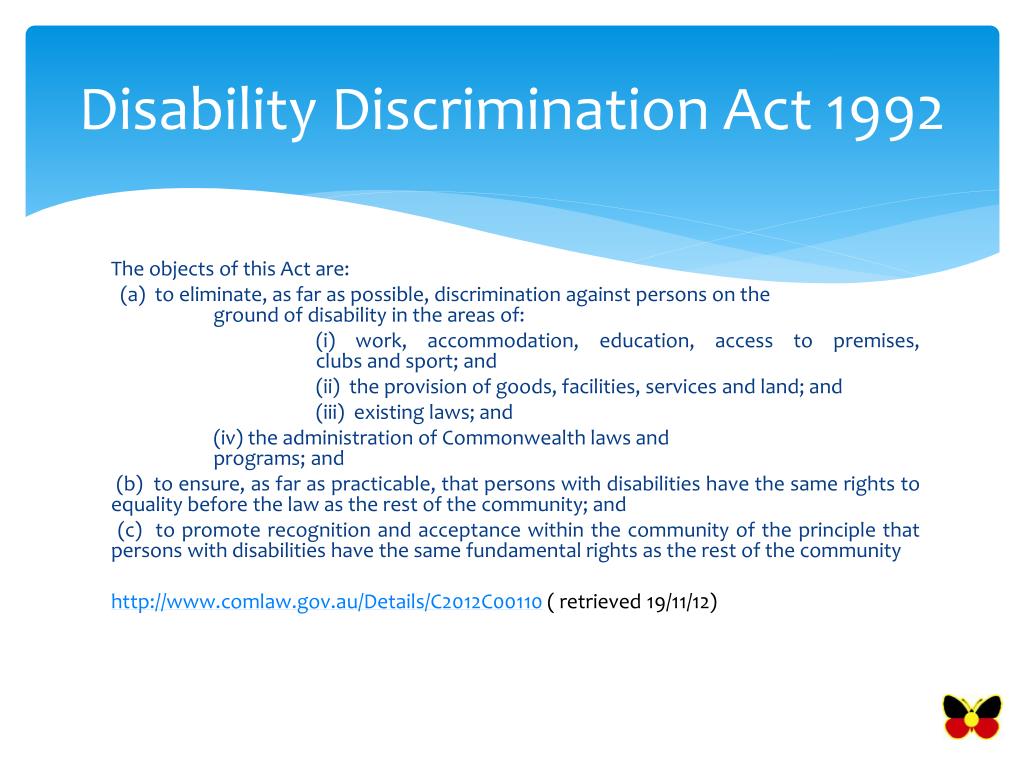Did you read the above passage and really let it sink in? If you’d like the longer version, passed into law no less than thirty years ago, just click on the above paragraph and it will take you to the Website.
Back in the eighties Caregivers and family members were becoming very vocal. There was no NDIS. Personally I could only access three weekends of respite for my son a year. Respite just wasn’t available in most areas, and if it was the waiting list was extensive. Home help from the local Council allowed me two hours of help once a week so I could at least attend a personal appointment or do the weekly shop without stress. If I needed a piece of equipment I borrowed it from the Spastic centre or found it second hand. Caregivers back then evolved to be a really tough group born of a need to be resilient and adaptive.
Support groups were becoming popular leading to discussion and organisation. Eventually an uprising began as advocates gave up asking for consideration and started marching with their wheelchair bound loved ones. The treatment of the disabled and their families was becoming a major nightly news story. Something had to be done to quell the anger and finally an announcement was made by the Government.
The Disability Discrimination Act 1992 was passed into law. Just remember for a moment, that we are talking thirty years ago. It was a big deal at the time, and I actually wrote about it for our local paper. Our town hall was abuzz with parents treated to champagne and nibbles to celebrate. I was swept up in the excitement as were many others who were caring full time for a child with a disability. For people in my situation there was a big sigh of relief. Finally we were hopeful of a positive future.

When I look back now I see nothing more than a strategic propaganda campaign to fool long term carers into believing things really were going to change. I see so many common themes running through the present discussions revolving around changes to the NDIS. The same request to families and Caregivers to share their stories. The same promises to improve service to our vulnerable. The same photo opportunities and big smiles when one fortunate person is shown receiving valuable help. All leading to the rest of us thinking our loved one may be so lucky. Perhaps this time long term exhausted caregivers, those who really have their loved ones’ interests at heart, will be heard. Personally I’m not convinced. And yet maybe I am missing something. What if we have had the tools necessary to protect our loved ones all along but individually have been waiting to be directed by others, afraid to break from the group and walk our own line?
Just ask yourself one simple question. If the Disability Discrimination Act 1992, was in fact put in place to improve the situation of our most vulnerable, then why are we still thirty years later, pleading and hoping for change? Why are we as Caregivers, treated as if we are lacking the intelligence to be able to make the necessary and best decisions for the care of our loved ones? Do we really need the wisdom of a cold unfeeling government department to decide who can or cannot come into our homes? Were we conned into believing we had achieved the respect we deserve as the one constant in the care of our loved ones? In my case decades of devoted care should be proof enough I can make the best decisions about whom we employ in consultation with my son and the professionals I seek advice from.
So now as I sit here reflecting on the NDIS review into the rights of our most vulnerable to receive appropriate care in a safe and effective way, I have to wonder if the propaganda mill has cranked up yet again. We are being asked to spew out the personal stories of all manner of horrible events. I could easily share a few shockers, but mine are no worse than others. The fact that together we have so many is proof in itself that the Disability Discrimination Act is either a fiction, or we as individuals, are remiss in not taking the laws that were put in place and using them as they were intended. Perhaps many of us really do prefer to wait for others to tell us what to do. I’m not ashamed to say I used to be in that camp. I learned the hard way that waiting for others to lend you a hand means waiting a long time indeed. It’s far better to stand up and say what you’ll accept, than hope that someday, eventually, someone just might listen.

The Government knows our stories back to front. They have heard them all before. Every day in offices across the country stressed parents and disabled clients vent their frustration. Shocking statistics of abuse are reported in the media. There are stories of children being harmed through restraints, sexual abuse, financial abuse, and poorly trained carers. Untrained criminal carers have even been sent to homes like mine where they are in a position to take advantage of my child or yours. That unfortunately has been the case for many of us. People desperate for work are ripe for the taking in an industry dealing with the vulnerable. Some disreputable, and yes registered providers, see profit as the main driver, not the welfare of their client. Registered, or unregistered is not the issue. Being involved in selecting carers and feeling comfortable with the people you have in your home is the issue. Not knowing who is being sent to your home leaves the whole family in a vulnerable position as I found out.
One evening the photo of a wanted man flashed across my TV screen. This wanted man had been introduced to my son by his carer. She was employed by a registered agency and someone I thought I could trust. I got her fired from that agency and yet two years later she was second in charge at another registered agency. So what makes registered more trustworthy than unregistered? I use both based on their willingness to support our right to interview the carers we employ for suitability. Today I won’t go through any agency which determines who they will send without my input.
As I look back what did I really do to bring this agency into line however? Not much. I personally felt letdown, my son was put in danger as was my family, I made a complaint, and then I joined the queue of disgruntled Caregivers who want more responsible service providers. What I would do now is a little different. I would make a police complaint against the manager based on the Disability Discrimination Laws we have in place and then I would share my story far and wide and out the Company publicly. I would do my best to see that Company lose clients left and right. Perhaps my complaint would be thrown out and I still won’t be heard. I know however, I would rather take direct action than be waiting another 30 years for yet another inquiry.

For many people, especially those who are living under constant stress, relating experiences can do the opposite and encourage silence. Sure some of us will speak, but most will feel the suppressed guilt so many carers live with, rising to the surface when they hear the stories of those they believe may be worse off than themselves. Some of my experiences may cause others to think they have had an easier path and that perhaps their complaint isn’t so bad. You’re experiences will be different to mine and may stir the guilt I have lived with for decades. I might recoil a little and instead feel grateful I don’t share your problems. Guilt is a powerful emotion that can be used to manipulate and erode confidence. Because they are parents and the protectors of their family members, Caregivers often silently wonder if they are doing their best, if they are to blame for an outcome, and even worse, if others look at them as if they are to blame.
The process of story telling and discussion can also protect the very institutions and service providers guilty of covering for abuse, poor practices or corruption, from legal ramifications as well. If sub optimal providers are run out of business there may be a shortfall in those you and I can call on for support for a time, but eventually reputable agencies who communicate positively with their clients and attract well trained people, will abound. The many reputable agencies existing presently, will no longer be besmirched by the scum I described above. The whole industry will benefit.
We are a group far bigger than any other vocal group in society. Yet other groups are heard because they gather in the city to protest in front of a media looking for stories. They sway elections and get laws changed to suit their cause. And they use those laws without second thought. We on the other hand are too busy caring for another to congregate far from home. We are often so desperate for any consideration or support that we praise our Government for establishing an avenue of complaint that will make it simple and stress free to tell our stories. We fail to notice it is in the best interest of the Government not to have us enforcing the rights of our loved ones legally.
It is abhorrent to still be asking for change or fretting over the threats to remove our rights to choose after all this time. We have a duty of care to ourselves and our loved one who relies on us for their safety and welfare and that means if an institution of any kind hires people who cause harm to our loved one, we have an obligation to hold them responsible and seek legal action.
Caregivers have a network in the hundreds of thousands. Cumulatively we are linked through a web of contacts whilst individually we can share our knowledge about the laws that are already in place. It would serve us all well to read the full Disability Discrimination Act document and think about what changes we can make in how we handle our own situation. It isn’t always the fault of a service provider or government department when things don’t work out as we had hoped. Each of us needs to take responsibility for putting forward our opinions and concerns in a calm and thorough way.
On a personal note decades of trial and error has helped me learn the skills necessary to communicate with professionals and service providers in a positive way. It wasn’t easy but taking back control has seen me put the dark days of being spoken down to, along with the terrible stories I could tell, far behind. My son and I get great support from the agencies and carers we deal with now. We have nothing but positive results from the way Robs’ NDIS funding is used. We choose our carers and we have no complaints. The changes have been huge over the past few decades and I for one am grateful for those changes. All of us can move forward in a positive way if we do a little research into our own situation, get familiar with the laws, communicate clearly with our providers and care from a base of what can be, rather than fear what might never be.

